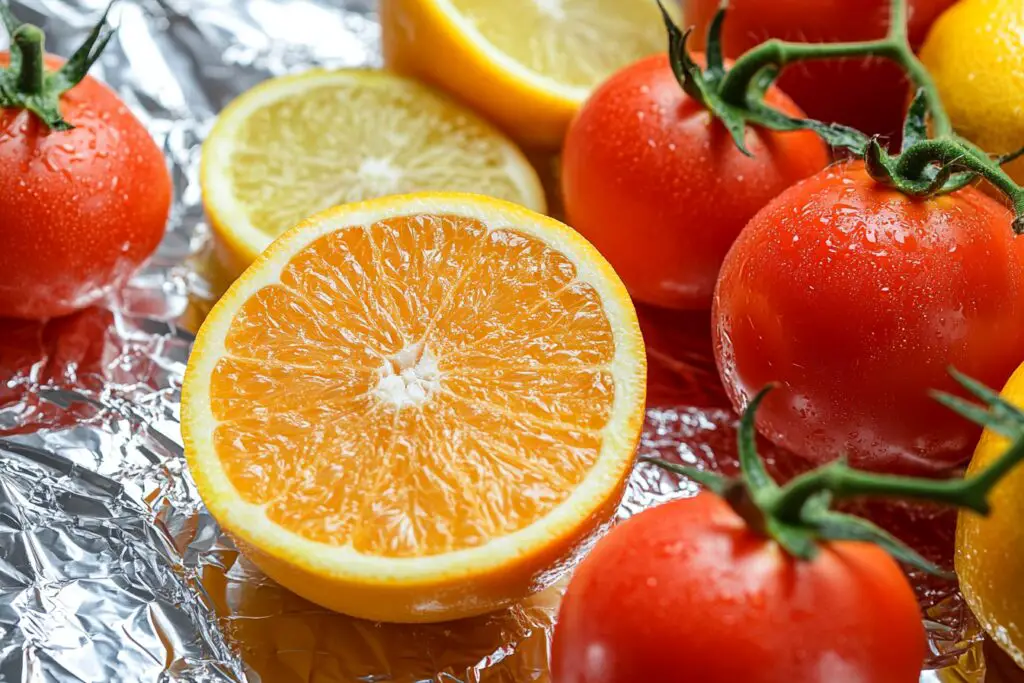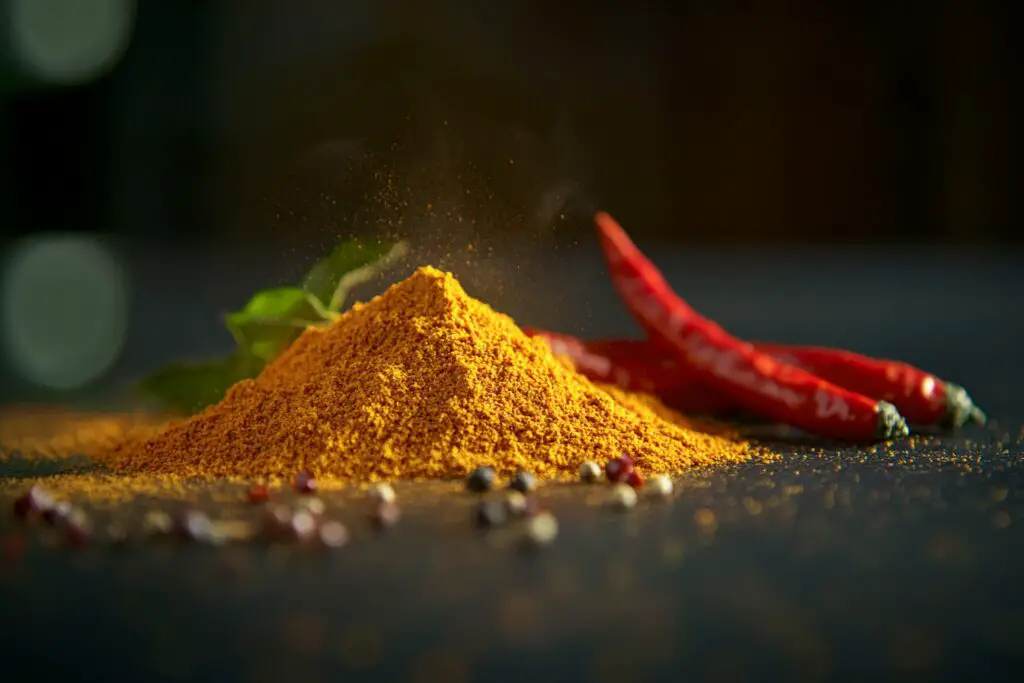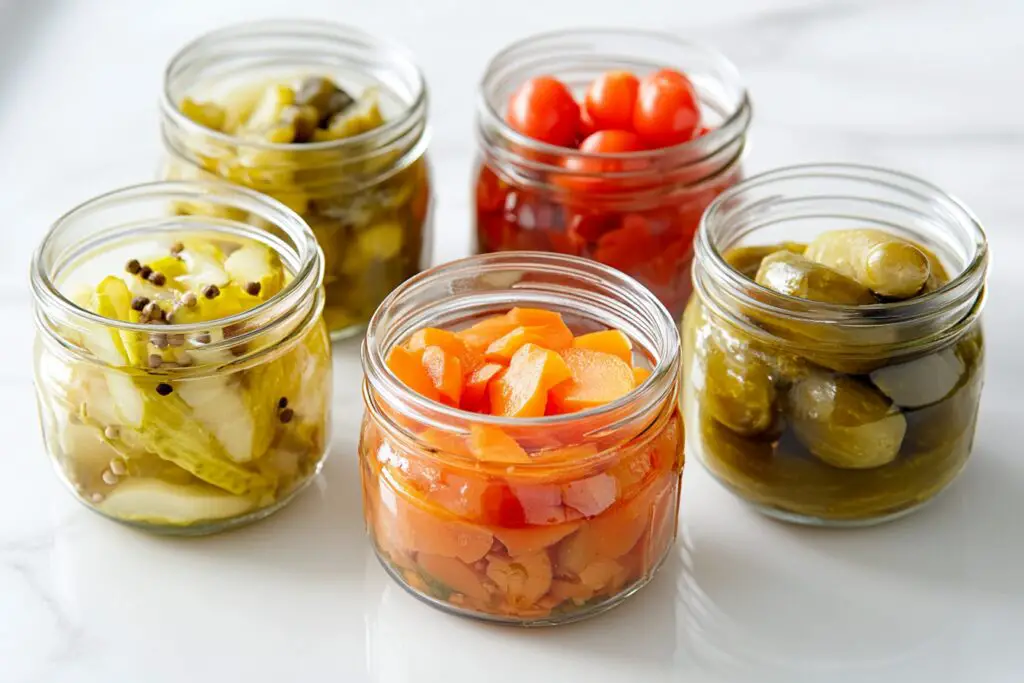While aluminum foil is a kitchen staple, not all foods play nicely with this versatile wrap. What if your perfectly marinated salmon ended up with an odd metallic taste? Understanding which foods to keep away from foil can prevent cooking mishaps and ensure your meals maintain their intended flavors.
Acidic fruits and tomatoes react with foil

When acidic foods come into contact with aluminum foil, they trigger a chemical reaction that can alter their taste significantly. Citrus fruits and tomatoes are particularly problematic, as their high acid content can cause aluminum to leach into the food, resulting in an unmistakable metallic flavor.
Instead of using foil, store these items in glass containers or ceramic dishes. When cooking tomato-based dishes, opt for parchment paper or oven-safe glass containers that won’t react with the acids.
Marinated fish and meat need different storage
Research shows that marinated proteins, especially fish like salmon and mackerel, show significantly higher aluminum absorption when wrapped in foil. The combination of marinades and aluminum can create an unpleasant metallic taste that overshadows the intended flavors of your dish.
For marinated meats and fish, use sealed plastic containers or resealable bags designed for food storage. These alternatives maintain the marinade’s contact with the protein without any unwanted metal interaction.
Spicy foods can cause unexpected reactions

Your favorite spicy dishes might need to stay away from aluminum foil too. Spices like paprika, chili, and cumin can react with the foil, potentially affecting both the taste of your food and the integrity of the wrap itself.
When storing or reheating spicy foods, choose airtight containers made of glass or BPA-free plastic. These materials won’t interact with your seasonings and will keep your dishes tasting exactly as intended.
Potatoes wrapped in foil can harbor bacteria
Many people wrap potatoes in foil for baking, but this common practice can lead to problems. The foil traps moisture, creating an environment where harmful bacteria can thrive. Additionally, your potato skin won’t achieve that desirable crispiness when wrapped.
For perfect baked potatoes, skip the foil entirely. Simply wash, dry, and prick them with a fork before placing them directly on the oven rack. This method ensures a fluffy interior and that signature crispy skin everyone loves.
Salt and vinegar based foods need different storage

Foods high in salt or vinegar can cause aluminum to break down and transfer into your food more rapidly. This includes pickled vegetables, salt-cured meats, and vinegar-based dressings.
Glass containers are ideal for these items, as they’re non-reactive and won’t affect the taste or quality of your food. If you must use foil temporarily, consider creating a barrier with parchment paper between the food and foil.
Think of aluminum foil as a temporary solution rather than a long-term storage option. For any food storage beyond a few hours, airtight containers are your best bet. They prevent bacterial growth, maintain proper moisture levels, and keep your food tasting exactly as intended. When in doubt, remember that non-reactive materials like glass, ceramic, or appropriate food storage plastics are often the safest choice for your favorite dishes.

